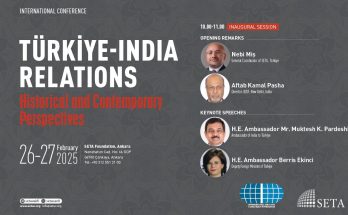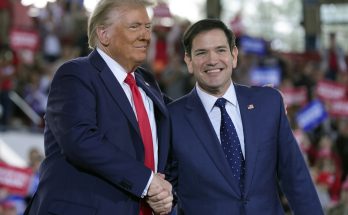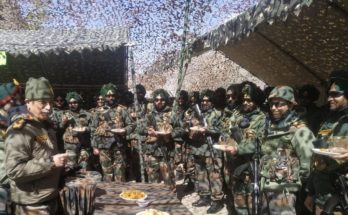 NEW YORK: Six months after the BRICS summit in Durban, the five-nation grouping of emerging economies underlined its growing strategic solidarity in New York by jointly backing a Russia-initiated proposal for the elimination of Syrian chemical weapons and pushed for diplomacy to resolve the issue.
NEW YORK: Six months after the BRICS summit in Durban, the five-nation grouping of emerging economies underlined its growing strategic solidarity in New York by jointly backing a Russia-initiated proposal for the elimination of Syrian chemical weapons and pushed for diplomacy to resolve the issue.
The foreign ministers of Brazil, Russia, India, China and South Africa met on the sidelines of the 68th session of the United Nations General Assembly in New York September 26 and discussed a cluster of regional and strategic issues, including Syria, the Middle East peace process and cyber security.
The striking congruence of perspectives on the Syrian issue pointed to the consolidation of the BRICS as an influential pressure group in world politics. The Russian proposal for defusing the Syrian crisis has proved to be a game-changer and has played a critical role in dissuading US President Barack Obama from going ahead with the planned military strike on Syria.
“The ministers expressed satisfaction with recent important developments that bring renewed hope for a peaceful resolution to the Syrian conflict. They welcomed the framework agreement for the elimination of Syrian chemical weapons reached by Russia and the United States,” said a joint statement after talks in New York September 26.
The BRICS’ position on Syria promises to be a moderating influence in the evolution of a lasting solution that pivots on diplomacy and dialogue, rather than military adventurism. In fact, the BRICS position could prove a principled and pragmatic template for mapping the way ahead in resolving the Syrian impasse as the foreign ministers stressed that “the elimination of chemical weapons and the political process aimed at resolving the Syrian conflict should be pursued in parallel.” The BRICS roadmap, among other things, includes convening of an international conference on the Syrian situation and full support for the efforts of the UN-Arab League Representative Lakhdar Brahimi in helping finding a political solution to the crisis. The collective BRICS endorsement for taking forward the Geneva II process has kindled hopes that the initiative that was languishing can now be pursued more constructively and with wider support.
Another important issue that brought the BRICS together was the revived prospect of peace in the perennially troubled Middle East. Hailing the announcement of the resumption of negotiations between Palestinians and Israelis as “an encouraging development,” the BRICS foreign ministers reaffirmed that the resolution of the Israeli-Palestinian conflict is a prerequisite for building a sustainable and lasting peace in the Middle East region. “They expressed their expectation that this renewed effort will lead to a two-state solution with a contiguous and economically viable Palestinian state, existing side by side in peace with Israel, within internationally recognized borders, based on those existing on 4 June 1967, with East Jerusalem as its capital.”
Building on the BRICS’ credentials as the creator of an alternative narrative in international politics, the foreign ministers came out strongly against unauthorized snooping and electronic surveillance, a veiled swipe at the US. The spying on embassies and government facilities has been a sore issue, specially with Brazil. In a hard-hitting speech at the UN, Brazilian President Dilma Rousseff lambasted US spying on her country and termed it a “breach of international law.” In fact, she went on to propose a multilateral, international governance framework to monitor US surveillance activity. The electronic espionage issue is also expected to figure in discussions between India’s Prime Minister Manmohan Singh and President Obama in Washington September 27.
The foreign ministers are also understood to have discussed a strategy for hastening reform of institutions of global financial governance.
The latest meeting of BRICS foreign ministers has reinforced the trend towards widening the strategic canvas of the BRICS grouping, which started off in the shadow of the global financial crisis in 2009 as a multilateral body focused on issues of global governance. Over the years, the grouping has led to a greater alignment of views among BRICS countries on a range of global issues. The deepening strategic content has, however, been complemented by well-designed moves to solidify the economic content of the BRICS grouping. Barely week ago, the leaders of BRICS countries had met on the margins of the G20 summit in St. Petersburg and had unveiled progress in setting up a landmark Development Bank with an initial corpus of $50 billion and creating $100 billion Currency Reserve Fund.
The contingency fund is set to act as a bulwark for the five emerging economies by providing them with a fall-back option to deal with short-term volatility in their capital flows, which could adversely impact their currencies.
This melding of economic and strategic facets bodes well for the future of the grouping that has the larger ambition of sculpting the contours of a new global order and projecting an emerging narrative of a renascent global South onto the global stage.
(Manish Chand is Editor-in-Chief of India Writes, www.indiawrites.org, an online journal and magazine focused on international affairs, emerging powers and dialogue among cultures. This article was first published in www.indrus.in)
Author Profile

- Manish Chand is Founder-CEO and Editor-in-Chief of India Writes Network (www.indiawrites.org) and India and World, a pioneering magazine focused on international affairs. He is CEO/Director of TGII Media Private Limited, an India-based media, publishing, research and consultancy company.
Latest entries
 India and the WorldFebruary 14, 2025Modi-Trump COMPACT: India, US launch MEGA partnership for 21st century
India and the WorldFebruary 14, 2025Modi-Trump COMPACT: India, US launch MEGA partnership for 21st century India and the WorldJanuary 28, 2025Modi, Trump talk global peace, focus on strategic connect
India and the WorldJanuary 28, 2025Modi, Trump talk global peace, focus on strategic connect India and the WorldDecember 16, 2024Kazan Spirit: India, China SRs to hold talks in Beijing
India and the WorldDecember 16, 2024Kazan Spirit: India, China SRs to hold talks in Beijing India and the WorldDecember 10, 2024Malta backs stronger ties, sees India as a rising global power: Envoy
India and the WorldDecember 10, 2024Malta backs stronger ties, sees India as a rising global power: Envoy







